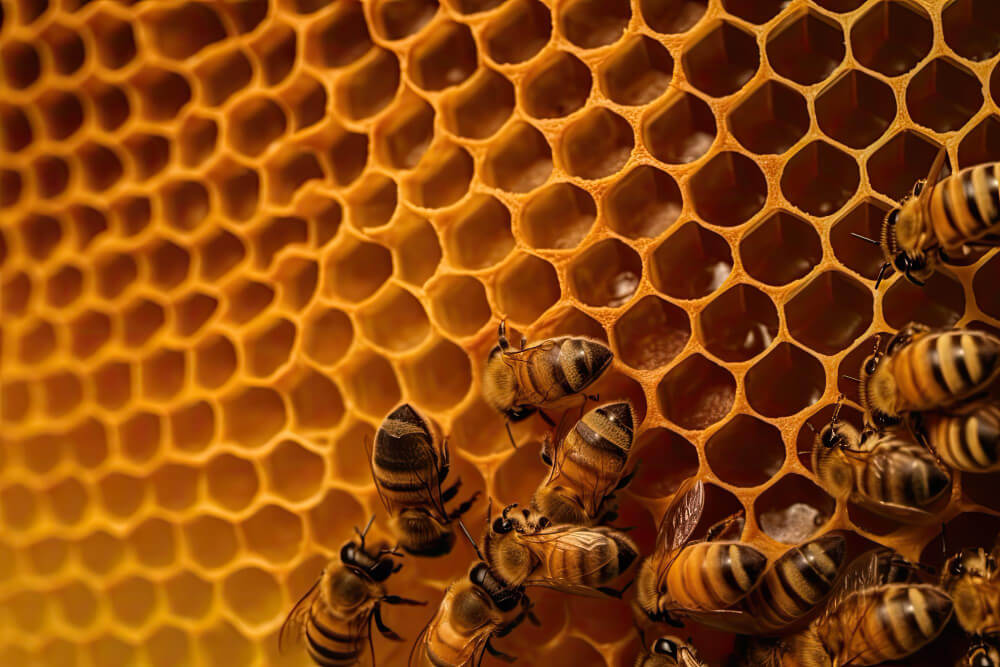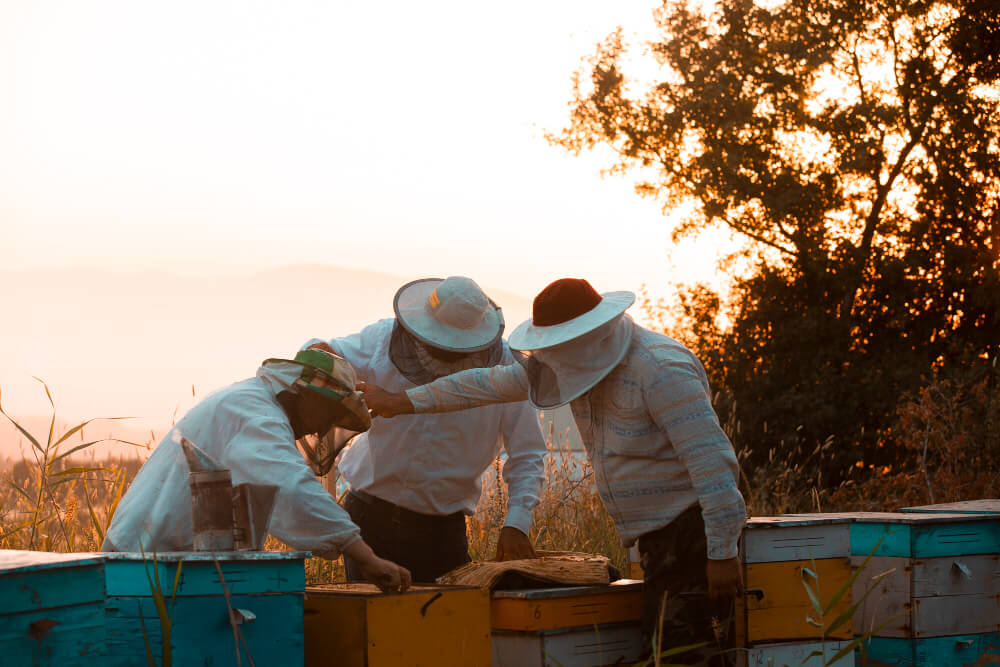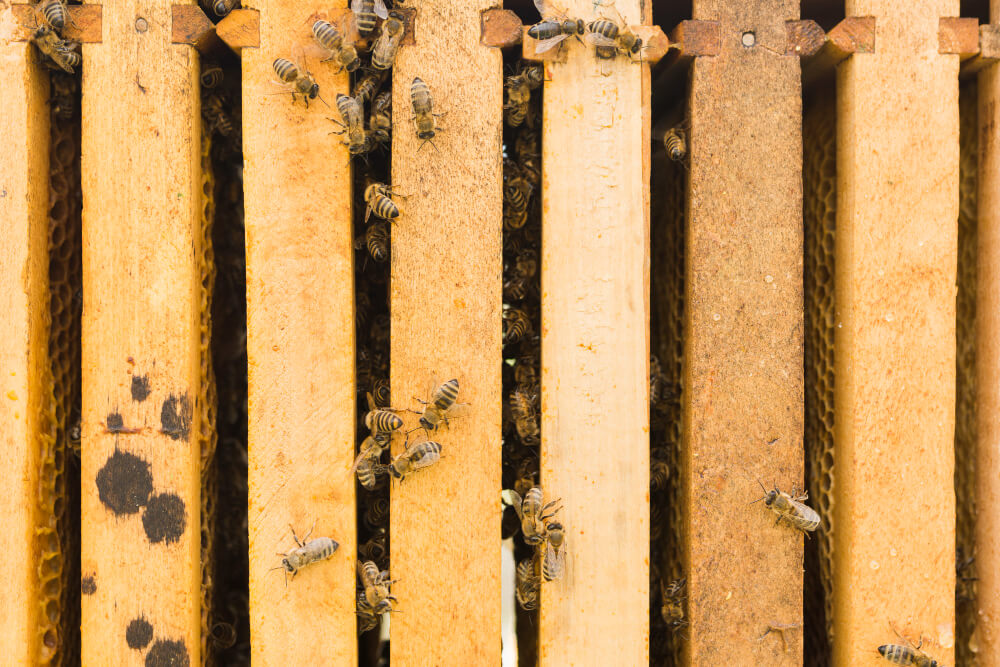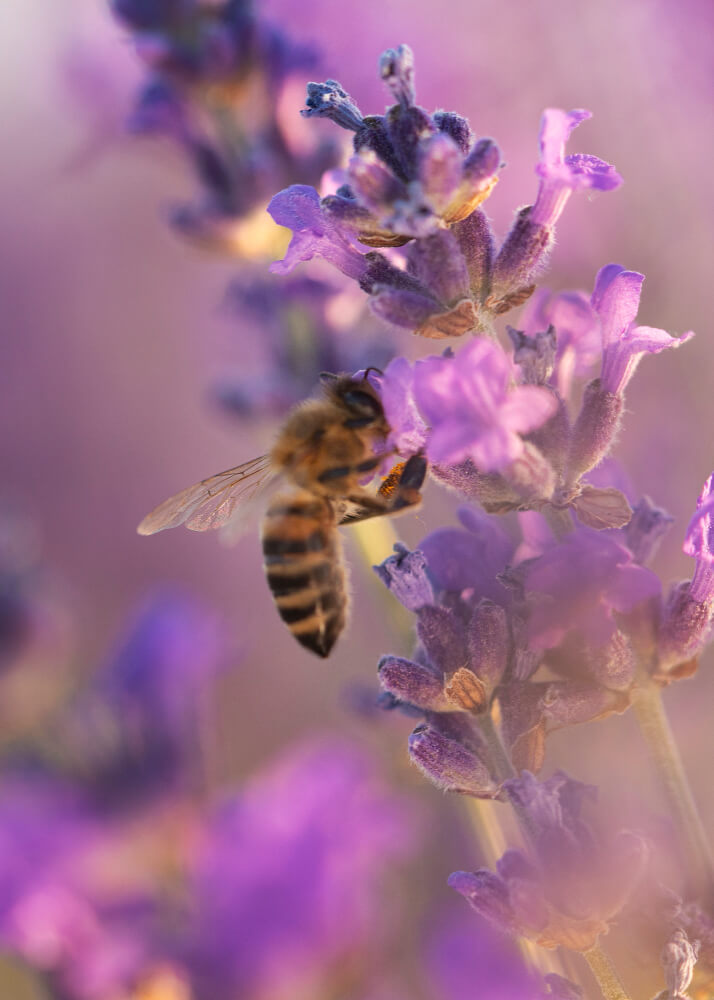Beekeeping, also known as apiculture, is a centuries-old practice that involves the careful management and care of bee colonies. It’s a fascinating endeavor that not only yields sweet rewards in the form of honey but also plays a crucial role in pollinating crops and maintaining ecological balance. As more individuals become interested in the world of beekeeping, a multitude of questions arise, from the basics of getting started to the more intricate aspects of hive management and bee behavior.
In this comprehensive guide, we’ll delve into the frequently asked questions about beekeeping, shedding light on everything from the history of this ancient craft to the challenges faced by modern-day beekeepers. Whether you’re a novice eager to embark on your beekeeping journey or simply curious about the world of bees and honey, these answers will provide valuable insights into the world of beekeeping.
Let’s explore the world of beekeeping through these common questions and uncover the secrets of this captivating and essential practice.
Index:
- Introduction
- The Art and Importance of Beekeeping
- Frequently Asked Questions
- What is Beekeeping Called?
- How to Start Beekeeping?
- How Much Do Beekeepers Make?
- Will Beekeepers Remove Bees for Free?
- How Often Do Beekeepers Get Stung?
- How Much Do Beekeepers Make Per Hive?
- Why Are Beekeeping Suits White?
- When Did Beekeeping Start?
- How Many Beekeepers Are in the US?
- Is Beekeeping Bad for Bees?
- Does Beekeeping Help Bees?
- Is Beekeeping an Easy Hobby?
- What’s the Difference Between a Bee Farmer and a Beekeeper?
- What’s the Hardest Part of Beekeeping?
- Conclusion

What is beekeeping called?
Beekeeping is called “beekeeping” or “apiculture.” It involves the management and care of bee colonies for various purposes, such as honey production, pollination, and wax collection.
How much does beekeeping make?
The income from beekeeping can vary significantly depending on several factors, including the number of hives, location, honey quality, and marketing efforts. Some beekeepers may earn a modest supplementary income, while others with larger operations and successful marketing can generate substantial profits. It’s essential to note that beekeeping often requires initial investments in equipment and education.
How to start beekeeping?
To start beekeeping, follow these steps:
- Research: Learn about bee behavior, hive types, and bee diseases.
- Obtain equipment: Purchase hives, protective gear, tools, and bees.
- Location: Choose a suitable location for your hives.
- Hive management: Regularly inspect and care for your bee colonies.
- Safety: Always wear protective gear to avoid bee stings.
- Join a beekeeping association: Seek advice and support from experienced beekeepers.
Will beekeepers remove bees for free?
Whether beekeepers will remove bees for free depends on various factors, including the location, the accessibility of the swarm or colony, and the beekeeper’s policies. Some beekeepers may offer free removal services for honeybee swarms when they are easily accessible, while others may charge a fee for more challenging removals.
How often do beekeepers get stung?
Beekeepers can get stung occasionally, especially during hive inspections and maintenance. However, with experience and the use of protective gear, the frequency of bee stings can be minimized. Bee stings are a normal part of beekeeping, and many beekeepers build a tolerance to them over time.
How much do beekeepers make per hive?
Income per hive varies widely depending on factors like honey production, local honey prices, and operating costs. On average, a well-managed hive can produce 30-50 pounds of honey per year, which can be sold at market prices. Beekeepers with multiple hives can potentially generate a more significant income.
Why are beekeeping suits white?
Beekeeping suits are often white because bees tend to be less aggressive towards lighter colors. White suits also reflect sunlight, helping keep beekeepers cooler while working in the hive. Additionally, white suits make it easier for beekeepers to spot potential pests or diseases on their clothing.
When did beekeeping start?
Beekeeping has ancient origins and has been practiced for thousands of years. Evidence of beekeeping dates back to ancient Egypt, Greece, and Rome, where people kept bees for honey and other products.
How many beekeepers are in the US?
The exact number of beekeepers in the United States may vary from year to year, but there are thousands of registered beekeepers in the country. Beekeeping has gained popularity in recent years, in part due to increased awareness of pollinator conservation.
Is beekeeping bad for bees?
When practiced responsibly and with care for the bees’ well-being, beekeeping is not inherently bad for bees. In fact, beekeepers can contribute to bee conservation efforts by providing safe environments, managing diseases, and helping bee populations thrive.
Does beekeeping help bees?
Responsible beekeeping practices can help honeybee populations by providing suitable habitats, controlling diseases, and contributing to pollination efforts. Beekeepers play a role in supporting healthy bee colonies, which, in turn, benefit agriculture and ecosystems through pollination.
Is beekeeping an easy hobby?
Beekeeping can be a rewarding hobby but is not without its challenges. It requires continuous learning, dedication, and attention to detail. Beekeepers must be prepared to handle various tasks, including hive inspections, pest management, and honey extraction. It’s important to start small and gradually expand to gain experience.
What is the difference between a bee farmer and a beekeeper?
The terms “bee farmer” and “beekeeper” are often used interchangeably, but they can have slightly different connotations. A bee farmer may focus more on large-scale honey production and pollination services, while a beekeeper might have a smaller-scale operation and a primary interest in bee colony management. However, the distinction is not always rigid, and the terms can vary in usage.
What is the hardest part of beekeeping?
The hardest part of beekeeping can vary from person to person, but common challenges include:
Managing bee diseases and pests.
Maintaining healthy colonies through seasonal changes.
Minimizing bee stings and staying safe during hive inspections.
Balancing time and resources to care for multiple hives.
Adapting to unexpected issues that may arise within the hive.
Conclusion:
In the realm of beekeeping, there is an intricate dance between humans and nature, as beekeepers tend to their colonies while the bees, in turn, contribute to the flourishing of ecosystems through pollination. As we’ve navigated the frequently asked questions surrounding beekeeping, it’s evident that this ancient craft continues to captivate and inspire people around the world.
Beekeeping is not merely about harvesting honey; it’s about fostering a delicate partnership with one of nature’s most remarkable creatures, the honeybee. It’s about understanding the intricate workings of a hive, the roles of queen bees, worker bees, and drones, and the challenges that come with hive management. It’s also about recognizing the vital role bees play in our food supply chain and the urgency of protecting their populations.
Whether you’re considering becoming a beekeeper, seeking to deepen your knowledge, or simply fascinated by the world of bees, remember that beekeeping is a journey of discovery and stewardship. It’s a journey where you’ll not only savor the fruits of your labor in the form of golden honey but also contribute to the well-being of these incredible pollinators.
As you embark on your beekeeping adventure or simply continue to appreciate the vital work of beekeepers, may you find inspiration in the wonder of the hive and the sweet rewards it offers. And, as always, may your journey in beekeeping be filled with respect for these tiny yet mighty creatures and a commitment to their protection and well-being.




